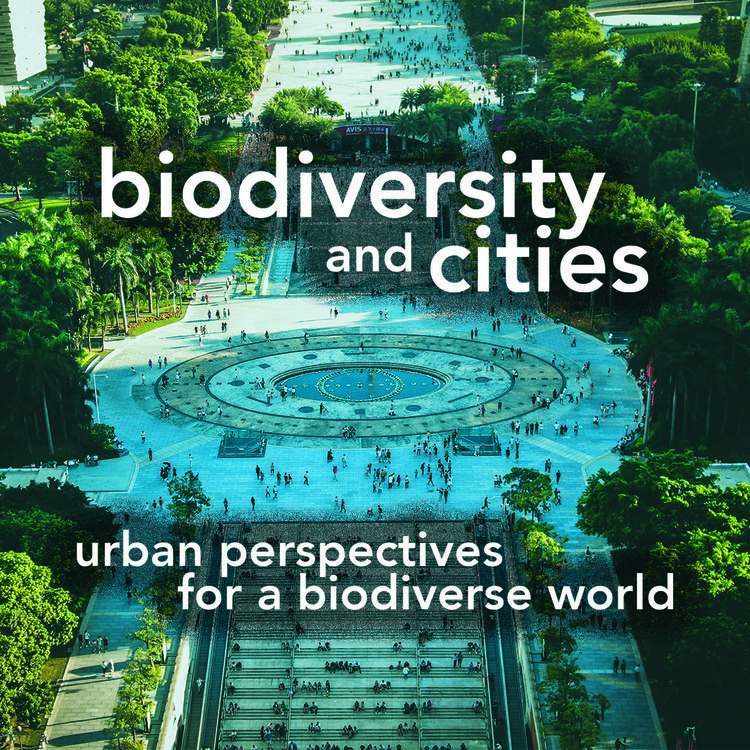
Events
Biodiversity and Cities

It's easy for those managing, designing and living in cities to feel there is a hard divide between their lives and the natural world. In fact, cities drive land use and resource extraction far beyond their borders, and the evidence is growing that setting aside protected land has been too slow and will not be enough to address our biodiversity crisis in a world where all life forms are deeply impacted by human activities.
In two sessions on May 26 and 27, "Biodiversity and Cities" will explore how urbanization can and must support biodiversity conservation, from a global scale to city-level strategies and from socio-economic models to the actions of citizens and environmental stewards—especially in the global south where biodiversity is richest and urbanization fastest. How can cities minimize land conversion and resource extraction that drives biodiversity loss? How can they enhance biodiversity within city boundaries and in surrounding regions? And how can they support both their own citizens and the rural communities they interact with to protect nature-rich areas?
This event is part of the People, Prosperity and the Planet lecture series produced by the MIT Environmental Solutions Initiative, and is presented in partnership with the Alexander von Humboldt Institute in Colombia and the MIT Sloan Latin America Office.
A speaker schedule for the two sessions of the event follows.
Session 1 (May 26): Science, Policy and Design Frameworks for Biodiversity and Cities
Global lens: Reflections on the effects of urbanization, energy and material flows on biodiversity inside and beyond city boundaries. With Professor John E. Fernández, Director, MIT Environmental Solutions Initiative.
City-level lens: Planning and managing gray, green and blue infrastructures, with a focus on biodiversity and equity. With Wendy Steele, Associate Professor in Sustainability and Urban Planning, Centre for Urban Research at RMIT University of Melbourne, Australia.
Socio-economic lens: How urban biodiversity offers a wide range of opportunities to improve socioeconomic development in cities. With Felipe García, Head of Biodiversity Sciences Program, Alexander von Humboldt Research Institute of Biological Resources.
Ecological citizenship lens: Reflections on the social production and management of habitat as it relates to sustainable urban development. Speaker to be announced.
Session 2 (May 27): Case Studies from the Global South
Global lens: Urban metabolisms analysis in Morocco and Thailand. With Norhan Bayomi, PhD candidate in architecture, MIT Urban Metabolism Lab.
City-level lens: Colombia's Biodivercities Program. With Vice-minister Nicolás Galarza, Ministry of the Environment of Colombia.
Socio-economic lens: Biodiversity as a means to retain talent and foster economic development, equity and social inclusion in the Colombian Pacific Region. With Ana María Bermudez, Researcher at the Interdisciplinary Center for Development Studies CIDER, Los Andes University.
Ecological citizenship lens: Socio-ecological processes in African cities. With Aliyu Barau, Head of the Department of Urban and Regional Planning, Bayero University of Kano, Nigeria.
Moderators: Marcela Angel, Research Associate, MIT Environmental Solutions Initiative, and Diana Ruiz, Research Associate, Territorial Management Program, Alexander von Humboldt Institute Colombia.

